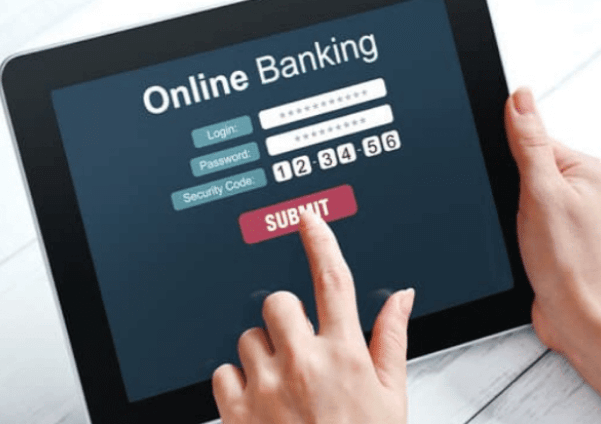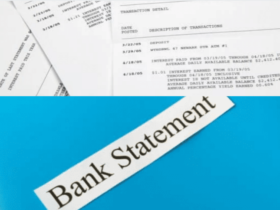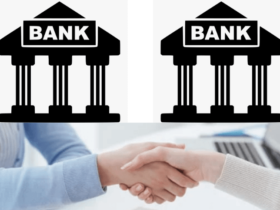What Is Online Banking? Online banking allows you to manage your bank account on the Internet using a computer or mobile device.
Online banking, also known as ebanking, Internet banking, or web banking, describes online systems that give users access to their personal bank account information and functions.
Net banking is a facility offered by banks and financial institutions that allows customers to use banking services over the Internet.
There is no need to visit a bank branch, and you can do all your banking transactions when it is most convenient for you, including outside of normal banking hours.
Online banking provides customers with traditionally almost every service through a local branch, including deposits, transfers, and online bill payments.
You can usually pay bills, transfer funds, apply for loans, deposit checks, and verify transactions and account balances.
If you want to use internet banking services, you will have to register for convenience at the time of opening an account or later. What Is a Bank Statements?
You have to use the registered customer ID and password to log in to your Internet banking account.
Virtually every banking institution has some form of online banking, which is available through desktop versions and mobile apps.
How Online Banking Works
Online banking is designed to facilitate, saving your time and allowing you to do banking only on your own time rather than at the time of opening of your local bank branch.
Starting with opening an account, you can do almost anything at a traditional bank or credit union location.
You can open checking, savings, and other types of accounts online, often without the hassle of printing or physically signing.
With electronic signature capability, the entire process can now take less than 10 minutes.
Online banking requires a computer or other device, an internet connection, and a bank or debit card.
To access the service, customers have to register for their bank’s Internet banking service. And they need to create a password. Once they do, they can use the service to do all their banking.
Banks advise their customers to keep their login information confidential to protect their finances. When entering internet banking, customers must use a secure Internet connection.
Many banks offer a two-step security process that requires customers to have access to account information through an online system before verifying their identity.
Facilities of Online Banking
- Check the account statement online.
- Open a fixed deposit account.
- Pay utility bills such as water bills and electricity bills.
- Make merchant payments.
- Transfer funds.
- Order for a checkbook.
- Buy general insurance.
- Recharge prepaid mobile/DTH.
- Applying for Loans
- Depositing Checks
- Viewing Current and Past Transactions
- Staying Informed
Advantages of Online Banking
Basic banking transactions such as paying bills and transferring funds between accounts can be easily done 24 hours a day, seven days a week, wherever the consumer wishes.
In addition, You can check your account balance at any time and transfer funds without waiting for the bank to open.
Online banking is fast and efficient. Funds can be transferred between accounts almost immediately, especially if two accounts are held at the same institution.
You can complete your transaction from wherever you are. Pay utility bills, recurring deposit account installments, and others using online banking.
Consumers can open and close many different accounts online, from fixed deposits to recurring deposit accounts, which typically offer higher rates of interest.
In addition, You can complete any transaction in a few minutes through internet banking.
Funds can be transferred to any account within the country or can open a fixed deposit account on net banking without any time.
Consumers can check their accounts regularly, allowing them to keep their accounts safe.
When you make a transaction at the bank branch, you will get an acknowledgment receipt.
Disadvantages of Online Banking
An internet connection is the most important requirement to use Internet banking services. If you do not have access to the Internet, you cannot use any of the facilities offered online.
No matter how careful banks take to provide a secure network, online banking transactions are still susceptible to hackers.
To prevent unauthorized access, consumers are advised to use their own data plans instead of public Wi-Fi networks when using online banking.
If the customer requires large amounts of cash, online banking does not help.
There are people in India who live far away from the internet. This may be a new deal for them to understand how Internet banking works.
A password required to enter each and every Internet banking account to access the services. Therefore, the password plays an important role in maintaining integrity.
If the password reveals to others, they can use the information to develop some fraud.
READ ALSO : How to Transfer Money From One Bank to Another
READ ALSO : How to Check your Bank Balance Online









